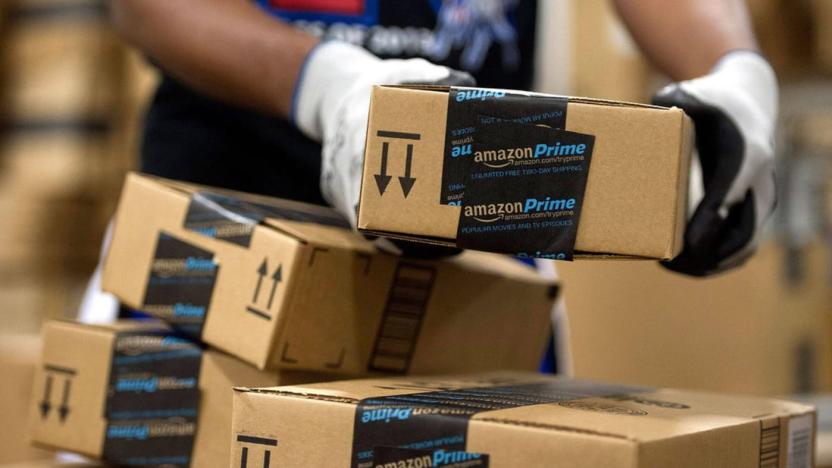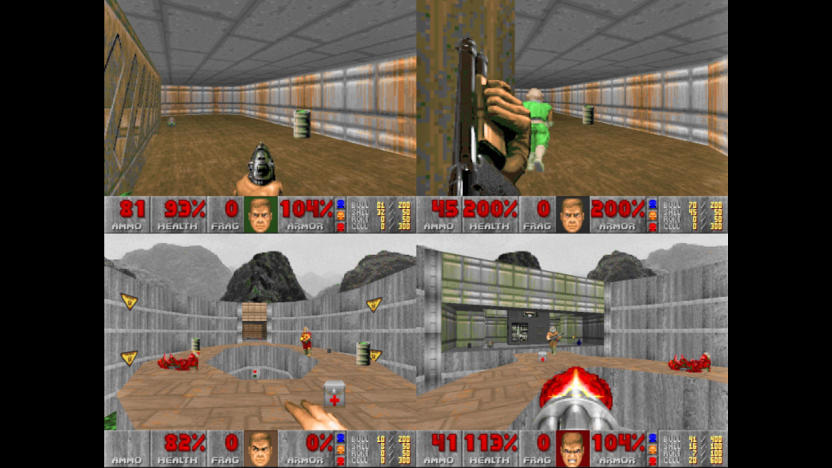neuralnet
Latest

Google' Allo chat app crafts custom emoji using your selfies
Google's Allo chat program is still missing some basic features, but hey, you're a fan of Bitmoji right? That's the line of thinking for the app's latest add-on: personalized emojis, made from your face. Unlike Snapchat's Bitmoji, though, Google's version relies on computer vision and neural networks to craft a likeness from your selfies. Yup, algorithms are being tapped to draw your face.

Neural networks can add natural animation to video games
We've seen procedurally generated worlds and weapons in video games before, but piecing together believable animations from a pool of variables is pretty tough. Previous attempts at it have looked janky and disjointed. It's okay in something like Ubisoft's experimental and quirky Grow Home, but big-budget AAA blockbusters akin to Uncharted 4 carry a different set of expectations. New research out of the University of Edinburgh is a bit different, and might help video games get away from one-size-fits-most pre-scripted animations, though.

Valve may be using a neural net against 'Counter-Strike' cheaters
It sounds like Valve is taking advantage of a neural network to combat the spread of cheats in Counter-Strike: Global Offensive. Posting on Reddit, someone using the moderator-verified Valve Anti-Cheat account wrote that a fix is in the works for folks using spinbot hacks. A spinbot, as Rock, Paper, Shotgun describes it, helps avoid being hit by other players' weapons. Combined with aiming cheats, it makes the cheater pretty impervious to defeat.

Google's arty filters one-up Prisma by mixing various styles
Basic filters are soooo last year, and Google knows it. It's all about turning your mundane pet photos into works of art now, spearheaded by popular mobile app Prisma. Since it launched earlier this year, Prisma's added an offline mode and video support (albeit after a me-too competitor), but just a few days ago Facebook revealed it's also working on style transfer tech for live video -- though Prisma says it's going to beat the social network to the punch in a matter of days. Now, Google has revealed it's going one better, detailing a system that can mix and match multiple art styles to create photo and video filters that are altogether unique.

Yahoo open-sources machine learning porn filter
Yahoo is the latest tech company to open source its computer vision code. The beleaguered outfit's application for it? Filtering porn. Yahoo hopes that its convolutional neural net (CNN) will empower others to better guard innocent eyes, but admits that because of the tech's very nature (and how the definition of "porn" can vary wildly), that the CNN isn't perfect. "This model is a general purpose reference model, which can be used for the preliminary filtering of pornographic images," a post on the Yahoo Engineering Tumblr says. "We do not provide guarantees of accuracy of output, rather, we make this available for developers to explore and enhance as an open source project." The code is available on Github at the moment, and if you need any testing material, well, there isn't exactly a shortage of it on Tumblr. Just ask Indonesia.

Neural net photography tweaks go mobile with Prisma on iOS
We've seen DeepMind's acid trip photo creations and what it looks like when algorithms colorize black and white photos. But you need to be near a computer for the former, and do some pretty heavy lifting, scientifically speaking, to set up the latter. But an iOS app is putting algorithm-based photo tweaks in your pocket. Dubbed Prisma, it takes a different approach than, say, Instagram. The app's filters are artistic, in the painterly definition of the word.

Computer vision is key to Amazon Prime Air drone deliveries
For all of Amazon's grand plans regarding delivery drones, it still needs to figure out concepts we take for granted with traditional courier methods. Namely, figuring out how to drop off your latest order without destroying anything (including the UAV itself) during transit and landing. That's where advanced computer vision comes in from Jeff Bezos' new team of Austria-based engineers, according to The Verge. The group invented methods for reconstructing geometry from images and contextually recognizing environmental objects, giving the drones the ability to differentiate between, say, a swimming pool and your back patio. Both are flat surfaces, but one won't leave your PlayStation VR headset waterlogged after drop-off.

AI will frag each other with rocket launchers in 'Doom'
An AI learning to walk through a Doom-inspired maze by sight is one thing, but how can it handle live multiplayer mayhem? That's what the "Visual Doom AI" competition this September hopes to discover. The first set of matches are limited to a dozen 10-minute rounds on a known map, with only one weapon: the rocket launcher. The AI "controllers" can pick up health packs and ammo, as well, and the winner will be picked by highest kill count.

This is what it looks like when a neural net colorizes photos
We've seen the horrific results of Google's servers taking acid and interpreting photos with DeepDream, but what happens when a neural network does something altogether less terrifying with snapshots? It'll go all Ted Turner and colorize black and white images with what it thinks are the right chroma values based on analyzing countless similar photos. At least that's what a team of University of California at Berkeley researchers experimented with in their paper Colorful Image Colorization (PDF).

Google acquires neural network startup that may help it hone speech recognition and more
Mountain View has just picked up some experts on deep neural networks with their acquisition of DNNresearch, which was founded last year by University of Toronto professor Geoffrey Hinton and graduate students Alex Krizhevsky and Ilya Sutskever. The group is being brought into the fold after developing a solution that vastly improves object recognition. As a whole, advances in neural nets could lead to the development of improved computer vision, language understanding and speech recognition systems. We reckon that Page and Co. have a few projects in mind that would benefit from such things. Both students will be transitioning to Google, while Hinton will split his attention between teaching and working with the search giant.

British researchers design a million-chip neural network 1/100 as complex as your brain
If you want some idea of the complexity of the human brain, consider this: a group of British universities plans to link as many as a million ARM processors in order to simulate just a small fraction of it. The resulting model, called SpiNNaker (Spiking Neural Network architecture), will represent less than one percent of a human's gray matter, which contains 100 billion neurons. (Take that, mice brains!) Yet even this small scale representation, researchers believe, will yield insight into how the brain functions, perhaps enabling new treatments for cognitive disorders, similar to previous models that increased our understanding of schizophrenia. As these neural networks increase in complexity, they come closer to mimicking human brains -- perhaps even developing the ability to make their own Skynet references.

Schizophrenic computer may help us understand similarly afflicted humans
Although we usually prefer our computers to be perfect, logical, and psychologically fit, sometimes there's more to be learned from a schizophrenic one. A University of Texas experiment has doomed a computer with dementia praecox, saddling the silicon soul with symptoms that normally only afflict humans. By telling the machine's neural network to treat everything it learned as extremely important, the team hopes to aid clinical research in understanding the schizophrenic brain -- following a popular theory that suggests afflicted patients lose the ability to forget or ignore frivolous information, causing them to make illogical connections and paranoid jumps in reason. Sure enough, the machine lost it, and started spinning wild, delusional stories, eventually claiming responsibility for a terrorist attack. Yikes. We aren't hastening the robot apocalypse if we're programming machines to go mad intentionally, right?

Researchers solve the "Cocktail Party Problem"
We suppose it depends on your level of paranoia whether you view the inability of government computers to listen to recordings of confusing party conversation muddle and pick out individual voices for special scrutiny a "Problem." But however your personal opinion on the matter falls, some researchers are claiming to have finally solved the "Cocktail Party Problem," which has befuddled scientists and snoops throughout the ages. The basic gist of the idea is that while a human can easily stand in the midst of a myriad of conversations and identify and follow each speaker individually, automated computer processing couldn't replicate this ability until now without having as many microphones as there were sound sources. Now a pair of University of Missouri-Columbia students are claiming victory over the problem using the "neural net" technique. In much the same way a human has natural abilities and responses to situations without exactly knowing why or how, the computer is trained through repetitive exposure to inputs (muddled sound) and outputs (single sources) until the computer figures out its own method for distinguishing -- though the actual process is still a tad mysterious. Of course, with the NSA involved and partially funding the project, they probably wouldn't have it any other way.







